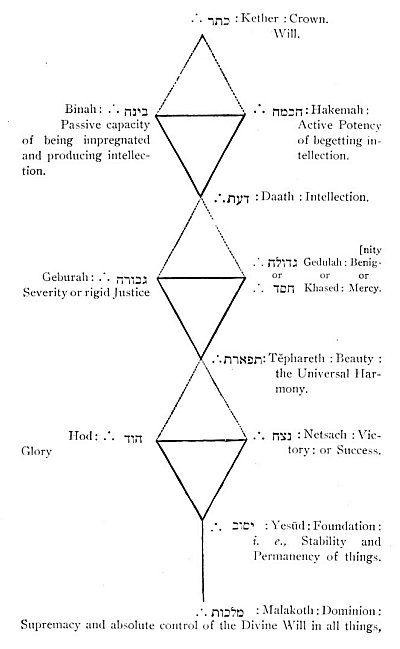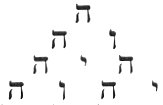In that empty void space the primitive men knew there was no light nor warmth. They felt, what we know scientifically, that there must be a thick darkness there, and an intensity of cold of which we have no conception. Into that void they thought the Sun, the Planets, and the Stars went down when they set under the Western Horizon. Darkness was to them an enemy, a harm, a vague dread and terror. It was the very embodiment of the evil principle; and out of it they said that he was formed. As the Sun bent Southward toward that void, they shuddered with dread: and when, at the Winter Solstice, he again commenced his Northward march, they rejoiced and feasted; as they did at the Summer Solstice, when most he appeared to smile upon them in his pride of place. These days have been celebrated by all civilized nations ever since. The Christian has made them feast-days of the church, and appropriated them to the two Saints John; and Masonry has done the same.
We, to whom the vast Universe has become but a great machine, not instinct with a great SOUL, but a clockwork of proportions unimaginable, but still infinitely less than infinite; and part at least of which we with our orreries can imitate; we, who have measured the distances and dimensions, and learned the specific gravity and determined the orbits of the moon and the planets; we, who know the distance to the sun, and his size; have measured the orbits of the flashing comets, and the distances of the fixed stars; and know the latter to be suns like our sun, each with his retinue of worlds, and all governed by the same unerring, mechanical laws and outwardly imposed forces, centripetal and centrifugal; we, who with our telescopes have separated the galaxy and the nebula into other stars and groups of stars; discovered
p. 596
new planets, by first discovering their disturbing forces upon those already known; and learned that they all, Jupiter, Venus, and the fiery Mars, and Saturn and the others, as well as the bright, mild, and ever-changing Moon, are mere dark, dull, opaque clods like our earth, and not living orbs of brilliant fire and heavenly light; we, who have counted the mountains and chasms in the moon, with glasses that could distinctly reveal to us the temple of Solomon, if it stood there in its old original glory; we, who no longer imagine that the stars control our destinies, and who can calculate the eclipses of the sun and moon, backward and forward, for ten thousand years; we, with our vastly increased conceptions of the powers of the Grand Architect of the Universe, but our wholly material and mechanical view of that Universe itself; we cannot, even in the remotest degree, feel, though we may partially and imperfectly imagine, how those great, primitive, simple-hearted children of Nature felt in regard to the Starry Hosts, there upon the slopes of the Himalayas, on the Chaldæan plains, in the Persian and Median deserts, and upon the banks of that great, strange River, the Nile. To them the Universe was alive–instinct with forces and powers, mysterious and beyond their comprehension. To them it was no machine, no great system of clockwork; but a great live creature, an army of creatures, in sympathy with or inimical to man. To them, all was a mystery and a miracle, and the stars flashing overhead spoke to their hearts almost in an audible language. Jupiter, with his kingly splendors, was the Emperor of the starry legions. Venus looked lovingly on the earth and blessed it; Mars, with his crimson fires, threatened war and misfortune; and Saturn, cold and grave, chilled and repelled them. The ever-changing Moon, faithful companion of the Sun, was a constant miracle and wander; the Sun himself the visible emblem of the creative and generative power. To them the earth was a great plain, over which the sun, the moon, and the planets revolved, its servants, framed to give it light. Of the stars, some were beneficent existences that brought with them Spring-time and fruits and flowers,–some, faithful sentinels, advising them of coming inundation, of the season of storm and of deadly winds; some heralds of evil, which, steadily foretelling, they seemed to cause. To them the eclipses were portents of evil, and their causes hidden in mystery, and supernatural. The regular returns of the stars, the comings of Arcturus, Orion,

Moe is the founder of GnosticWarrior.com. He is a father, husband, author, martial arts black belt, and an expert in Gnosticism, the occult, and esotericism.





